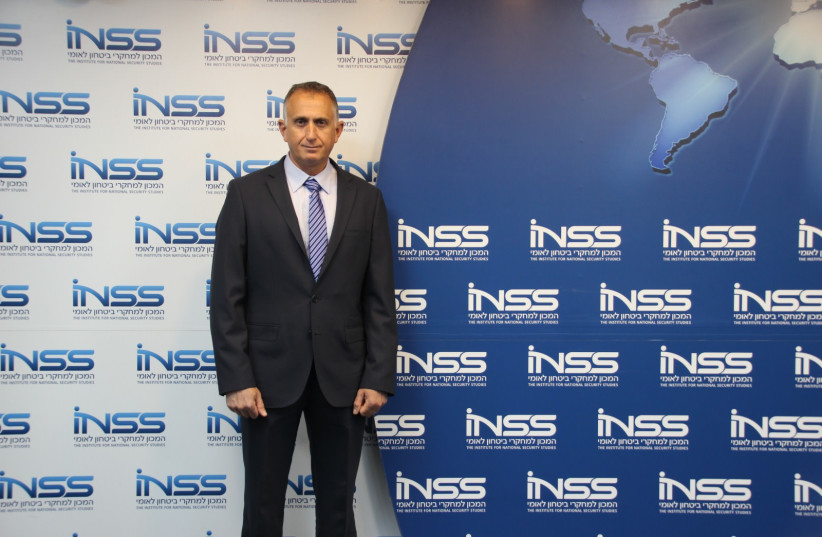Former IDF intelligence chief Tamir Hayman on Tuesday said that aspects of blocking Iran and its proxies’ progress in nuclear and precision weapons are far more difficult now than in the past.
Hayman is currently managing director of the Institute for National Security Studies. Speaking at a conference honoring the late INSS scholar Emily Landau, he said there were similar increasing intelligence challenges in preventing the Assad regime in Syria from restoring its chemical weapons arsenal.
Hayman noted that ballistic missile “scientists” for Hamas and other proxy groups now are not necessarily geniuses and are much easier to replace than in the past.
In the past, by eliminating one or two key scientists, Israeli actions could set back Iran’s nuclear programs or its proxies’ precision missile programs as with Hezbollah and Syria. However, the ex-Mossad chief seemed to be saying there has been a paradigm shift.
He argued that now the ability to construct more deadly weapons from simple parts is infinitely easier than it was previously. “This is not what it was before and this trend is growing,” he said.

What does this mean?
All of this means that Israeli intelligence must work much harder than ever and “get deep into the details” of the supply chain of each and every different precision weapon in order to thwart their development or find ways to locate and destroy them before they can be deployed.
Hayman referenced Defense Minister Benny Gantz’s recent presentation of some dozen different sites in Syria that the IDF recently hit to remove significant threats.
The former IDF intelligence chief also said, “A bottom-up trend” has started in Syria by chemical weapons experts prevailing on the Assad regime to reestablish its chemical weapons program after the Obama administration got them to give away most of those weapons in 2013.
Former Mossad Iran desk chief and current INSS Iran program head Sima Shine asked what Israel would do to prevent the Islamic Republic from going nuclear if the talks to return to the JCPOA fail.
She said there was a growing chance that Iran Supreme Leader Ayatollah Ali Khamenei never intended to return to the deal and has just been buying time to make advances in Iran’s nuclear program.
On that plane, Shine said that Tehran had advanced in every area of nuclear prowess, including most importantly, developing deep reservoirs of indigenous nuclear knowledge and experience.
Meanwhile, former senior Israel Atomic Energy official Ephraim Asculai warned that Israeli estimates saying it would take Iran a full two years to master detonation and delivery of nuclear weapons should be more modest.
He said it was possible that Iran was far ahead of where many estimates view is as being on the detonation and delivery tracks.
Moreover, he said it was even possible that Iran has already been provided certain aspects of nuclear technological development by Pakistan and that all of its testing in various areas is just to master those processes indigenously.
Asculai warned that the illicit uranium traces found by IAEA inspectors at three sites, which are part of open probes of Iran’s nuclear program, could hint to it being further along in weapons development than observers realize.
